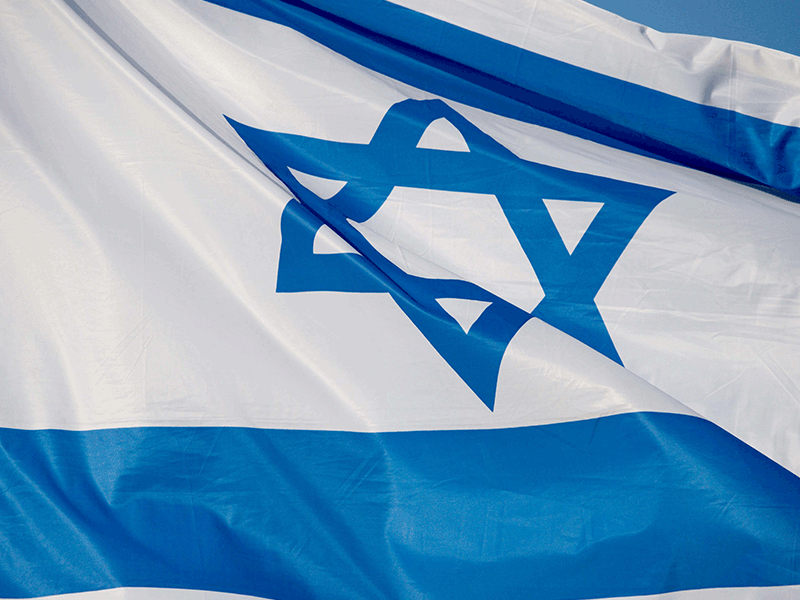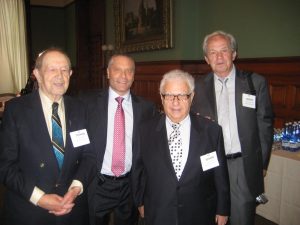In addition to Jews by birth and Jews by choice there have always also been Jews by surprise: men and women who discovered later in life that they were Jews. Some descendants of those forcibly converted to Christianity centuries ago choose even now to undergo DNA tests in search of their Jewish roots. In recent times, however, those researching their Jewish origins have mostly been persons rescued by Christian families and in Catholic convents before their parents went to their death in Nazi extermination camps. Their origins were not only concealed from the Nazis but also from them.
Romuald Waszkinel, a Polish priest and retired professor at the Catholic University in Lublin, is such a survivor. Some forty years ago, when he was about 35, the woman he knew as his mother told him that his birthparents were Jews who gave him to her and her husband when he was only a couple of weeks old thus saving him from extermination.
She knew almost nothing about the Jewish couple, not even their names. By arranging for a notice in a Polish paper in Israel, Father Romuald found his birthfather’s brother and his family. They met some time afterwards in Israel. Subsequently he also found relatives on his mother’s side. There’s a touching photograph of the priest and his uncle embracing at the airport in Tel Aviv. They’re almost identically dressed: one in his cassock, the other in his Hasidic garb.
Father Romuald continued teaching in Lublin, but now he also devoted time and effort to build bridges between Christians and Jews. He wrote about it and a film was made about him. He was interviewed in the media and he travelled at home and abroad telling his story. I met him first in Lublin and subsequently when he came to Canada as the guest of the Polish-Jewish Heritage Foundation.
He met with Christians and Jews here. I particularly recall a meeting in a Polish church in the GTA with a seemingly confused audience. On the one hand, as pious Catholics, those present were dutifully respectful of the priest, but at the same time they seemed extremely uncomfortable with the Polish Jew who often referred to his beloved teacher Pope John Paul.
He got permission from the Pope to hyphenate his name with the name of his birthfather Jakub (Polish spelling) Weksler.
When Romuald-Jakub Weksler-Waszkinel retired from teaching, he moved to Israel and came to work at the archives at Yad Vashem, the Holocaust memorial in Jerusalem. He also arranged for Yad Vashem to recognize the non-Jewish couple whom he knew as his parents as Righteous Gentiles.
At the same time, he tried to get the authorities in Israel to recognize him as a Jew. I once went with him to seek help from a prominent lawyer who heads an Israeli civil rights organization. The lawyer would argue, he told us, that this case couldn’t be compared to the celebrated case of Oswald Rufeisen, known as Father Daniel, who many years earlier had been denied his Jewish status in Israel on the grounds that he had consciously chosen to embrace Christianity.
Father Romuald, by contrast, never ceased to be a Jew, albeit unwittingly. After many years, his Jewish nationality and, subsequently, his Jewish status has been confirmed in Israel.
READ: MARMUR: THE FUTURE OF DIASPORA JEWRY IS IN THE SYNAGOGUE
I don’t think that he has ever regarded his determination to be recognized as a Jew as a rejection of Christianity in which he was reared but, rather, as an affirmation and a celebration of Judaism into which he was born. As he honoured the memory of the parents who reared him, he also wanted to honour the memory of the parents who bore him.
In his years in Israel, Ya’acov (that’s the name he now uses) learnt Hebrew and studied Judaism. Earlier this month, on Rosh Chodesh Adar Aleph, more than a hundred women and men – relatives, friends and co-workers – came together in the synagogue at Yad Vashem to celebrate his Barmitsvah. He donned tefillin and was called to the Torah as Ya’acov ben Ya’acov, Jacob the son of Jacob, to read the blessings. At the end of the service he said Kaddish for his four parents.
Those present included the former Chief Rabbi of Israel Israel Meir Lau, who currently chairs the board of Yad Vashem, and Rene Sirat, the retired chief rabbi of France whom Ya’acov had approached many years earlier on a visit to Paris. Present was also Michael Schuldrich, the chief rabbi of Poland.
The celebrant concluded his Barmitsvah speech with the words, “Chazarti habayta, I have come home.” This was indeed a homecoming. We who were present felt privileged to witness how this Jew by surprise was now recognized and celebrated as a Jew by birth. It was an unforgettable homecoming.







